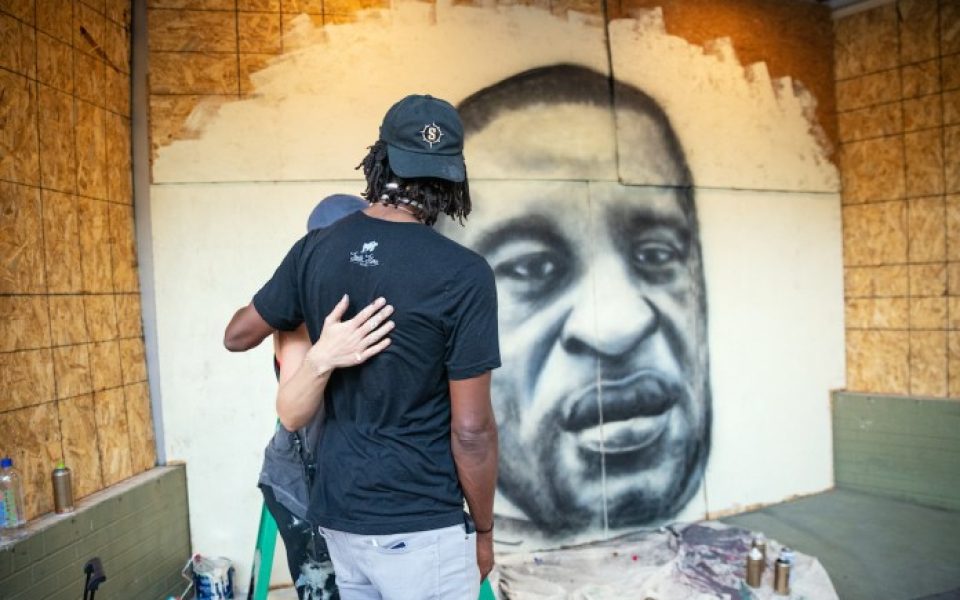His Name Is George Floyd: One Man’s Life and the Struggle for Racial Justice
by Toluse Olorunnipa and Robert Samuels (2022)

In so many ways, George Floyd was born to lose.
His entire life was shaped by policies that seem designed to shorten the odds for young, Black men: His public schooling came during drastic cuts to education in his home state of Texas. He could not fulfill the terms of his athletic scholarship to college and found himself unemployed and without skills in Houston. He got caught up in drugs while the severe Rockefeller drug laws were in effect, so his arrest for a small amount of cocaine led to a lengthy prison sentence. The AIDS crisis, the crack epidemic, the COVID pandemic, police militarization and the sheer physical and mental toll of simply being a large Black man in America all conspired to bring George Floyd to that Minneapolis streetcorner in 2020, where he was murdered in broad daylight — and on camera — by a police officer.
Floyd immediately became a symbol that kicked off a racial reckoning in those early days of the pandemic. But Washington Post journalist Robert Samuels and a team of reporters dove deep into the details of his life, humanizing him in a way that no street mural can. Samuels and co-author Toluse Olorunnipa turned the resulting series of articles, “George Floyd’s America,” published in October 2020, into a book, His Name Is George Floyd: One Man’s Life and the Struggle for Racial Justice, which is how Samuels found himself at Wake Forest University on Monday.

Using the tools of reporting and long conversations with Floyd’s surviving relatives, Samuels was able to verify a family story: that their ancestor, born a slave but freed at 8 years old, became a prominent tobacco farmer in North Carolina, controlling at one time more than 500 acres when that crop was king.
As the story goes, the family farm was reclaimed, parcel by parcel, from the farmer, who never learned to read or write. It was this demise that brought the family to Houston. This would have been after the Wilmington Massacre, but perhaps before the assault on Black Wall Street in Tulsa, Okla.
It was all true. White folks took the family farm, all nice and legal and recorded for history in court documents.
“It didn’t happen all at once,” Samuels told the room during his evening book reading. “It happened over time. And I wonder how many other stories there are like that.”
There is a sense of inevitability in the arc of Floyd’s life, but also so much hope. He kept trying, always, right up until the end, captured chillingly by Samuels in a Post piece about the health hazards presented merely by being George Floyd.
His kicker is told from the point of view of Floyd’s friends, eyewitnesses to his murder, providing a tragic coda to the narrative: They didn’t just see Floyd pleading for his life. They saw their friend realize there was no escape, that the early warnings given to Black boys would become his destiny.
They knew that fear. It was the fear of practically every Black man they knew.
Join the First Amendment Society, a membership that goes directly to funding TCB‘s newsroom.
We believe that reporting can save the world.
The TCB First Amendment Society recognizes the vital role of a free, unfettered press with a bundling of local experiences designed to build community, and unique engagements with our newsroom that will help you understand, and shape, local journalism’s critical role in uplifting the people in our cities.
All revenue goes directly into the newsroom as reporters’ salaries and freelance commissions.


Leave a Reply